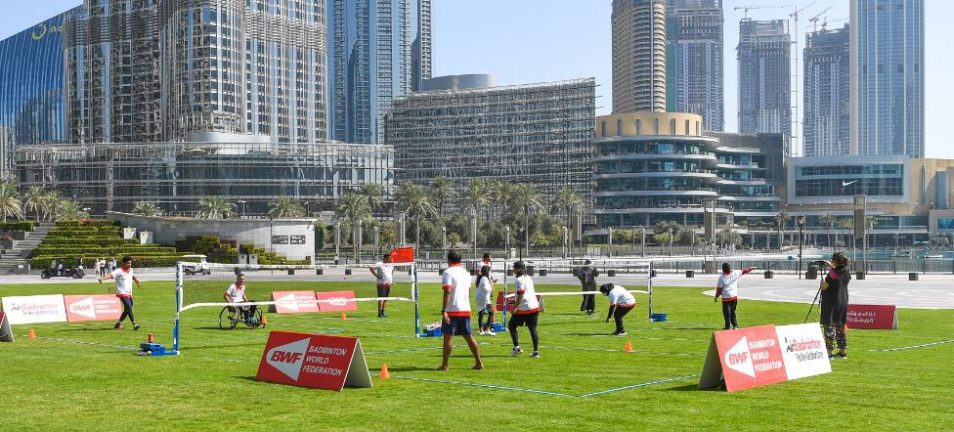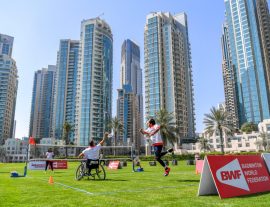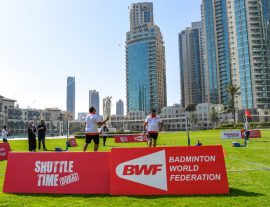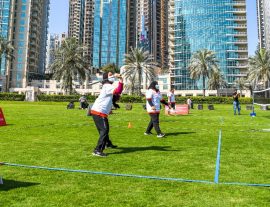April 9, 2021
‘Inclusion’ was the key principle underlined by Badminton World Federation (BWF) on the occasion of the International Day of Sports for Development and Peace which was celebrated on Tuesday, 6 April 2021.
Two programmes were conducted by BWF in Dubai to mark the occasion, in partnership with Special Olympics UAE, UAE Table Tennis and Badminton Association and Peace and Sport.
While Special Olympics seeks to provide sports opportunities for those with intellectual disabilities, Peace And Sport aims to build peaceful communities through the power of sport.
The first programme was an AirBadminton session held close to the iconic Burj Khalifa, featuring a session in which two Para badminton players participated alongside able-bodied peers. AirBadminton has rapidly emerged as an ideal sport in the pandemic-affected world as it is played outdoors and with a degree of social distancing, and BWF’s initiative in organising a session for 12 players – inclusive of a Wheelchair player and an SL4 athlete – highlighted the possibility and importance of inclusivity in sport.
The second programme, held later in the day, was a webinar session addressed by BWF Senior Development Manager John Shearer titled ‘Inclusive Badminton For All’, which had 83 participants and was moderated by Amr Badawi, Head of Sports and Training, UAE Special Olympics. Shearer’s presentation, translated into Arabic by BWF Dubai Badminton Development Manager Jaffer Ebrahim, focussed on BWF’s initiatives in fostering the inclusion of various communities – such as those with physical or intellectual disabilities, or those from disadvantaged or displaced backgrounds. Among those attending the webinar were Special Olympics participants.
Speaking of the progress made, Shearer recalled the Special Olympics World Games in Abu Dhabi in 2019, from which BWF had identified four areas of collaboration with Special Olympics – Development, Partnerships, Events and Communication. For instance, the focus in Events, he said, was enabling opportunities to players not only for larger events like the World Games, but also on regional competitions, and in programmes to train teachers, coaches and technical officials which would enable the sport to grow. Concurrently, Communication initiatives had promoted the stories of individual athletes and raised awareness on the work done. Partnerships with global organisations like Special Olympics helped results and opportunities filter down to local and regional level.
Among the important successes were an inclusive technical officials programme, and the involvement of badminton greats Wang Yihan and Peter Gade at the World Games as ambassadors.
“We’re proud of the work we did with our ambassadors Wang Yihan and Peter Gade in Abu Dhabi, including being able to do Q&As and autograph sessions with athletes. That helped us get more exposure and a much wider audience,” Shearer said.
Shearer touched upon the various projects that BWF has been involved with, such as the UNHCR project at the Azraq Refugee Camp in Jordan, the Shuttle Time project in Haiti, and the orphanage project in Kuala Lumpur. BWF believed in building local expertise that would translate into employment opportunities – one example being trainers at the Azraq Refugee Camp who were paid a fee for training children.
With the pandemic having affected the sporting landscape worldwide, Shearer acknowledged its impact on badminton development; however, there were some fresh initiatives, particularly with AirBadminton and Shuttle Time at Home. Shearer also had praise for Jaffer Ebrahim and his team in Dubai, who have continued to build momentum in raising the profile of badminton in the region.






























